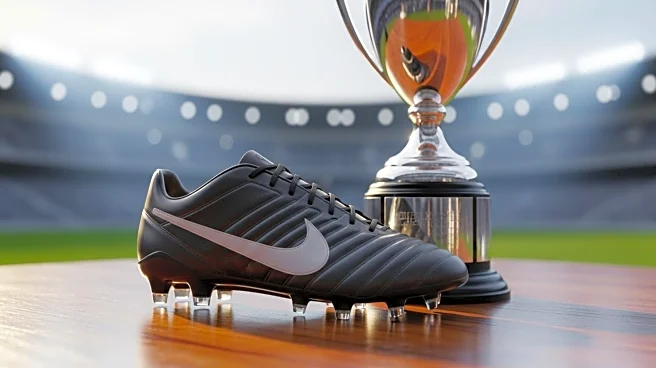What's Happening?
Jack Grealish, the English footballer, has opened up about his departure from Manchester City and his subsequent revival at Everton. After falling out of favor with Manchester City's manager Pep Guardiola, Grealish was loaned to Everton for the season. At Everton, he has rediscovered his form, providing four assists in five Premier League matches. Grealish expressed his desire to feel loved and appreciated, which he felt was lacking at Manchester City. He acknowledged that his off-field partying did not help his situation at City but emphasized that it was not the sole reason for his departure. Grealish has been instrumental in Everton's success this season, leading the league in assists, fouls won, and total carries.
Why It's Important?
Grealish's move to Everton and his improved performance highlight the impact of player management and environment on athletic performance. His situation underscores the importance of mental well-being and feeling valued in professional sports. For Everton, Grealish's contributions are significant as they aim to climb the Premier League standings. His revival could also influence other clubs to consider the psychological aspects of player management. Manchester City may need to reassess their approach to player relations, especially for those who thrive under different management styles.
What's Next?
Grealish is expected to continue playing a pivotal role for Everton as they face upcoming matches. His performance will be closely watched to see if he can maintain his form and further contribute to Everton's success. Manchester City may reflect on their player management strategies, potentially leading to changes in how they handle players who require different motivational approaches.
Beyond the Headlines
Grealish's story may inspire discussions on the balance between professional responsibilities and personal life in sports. It raises questions about how clubs can support players in managing their public personas while maintaining performance standards. The narrative also touches on the broader theme of athlete vulnerability and the need for supportive environments.









